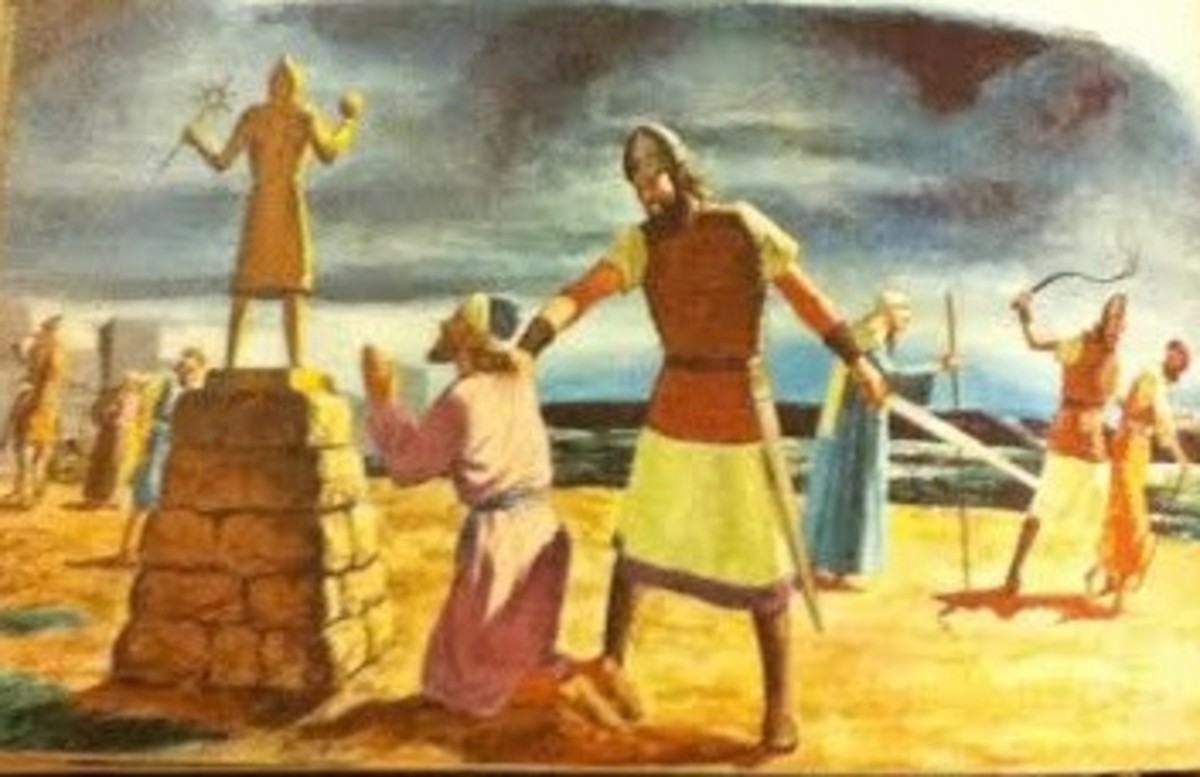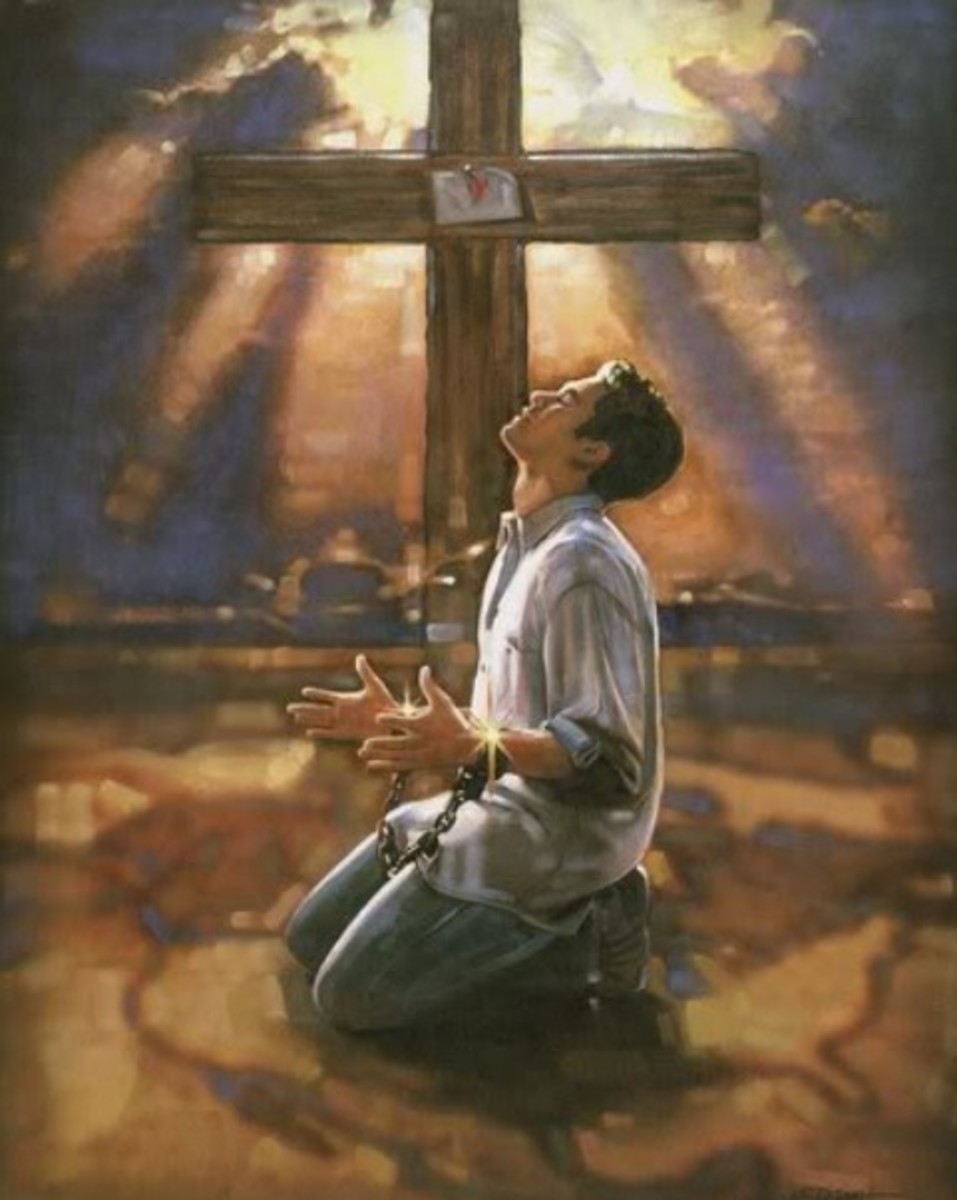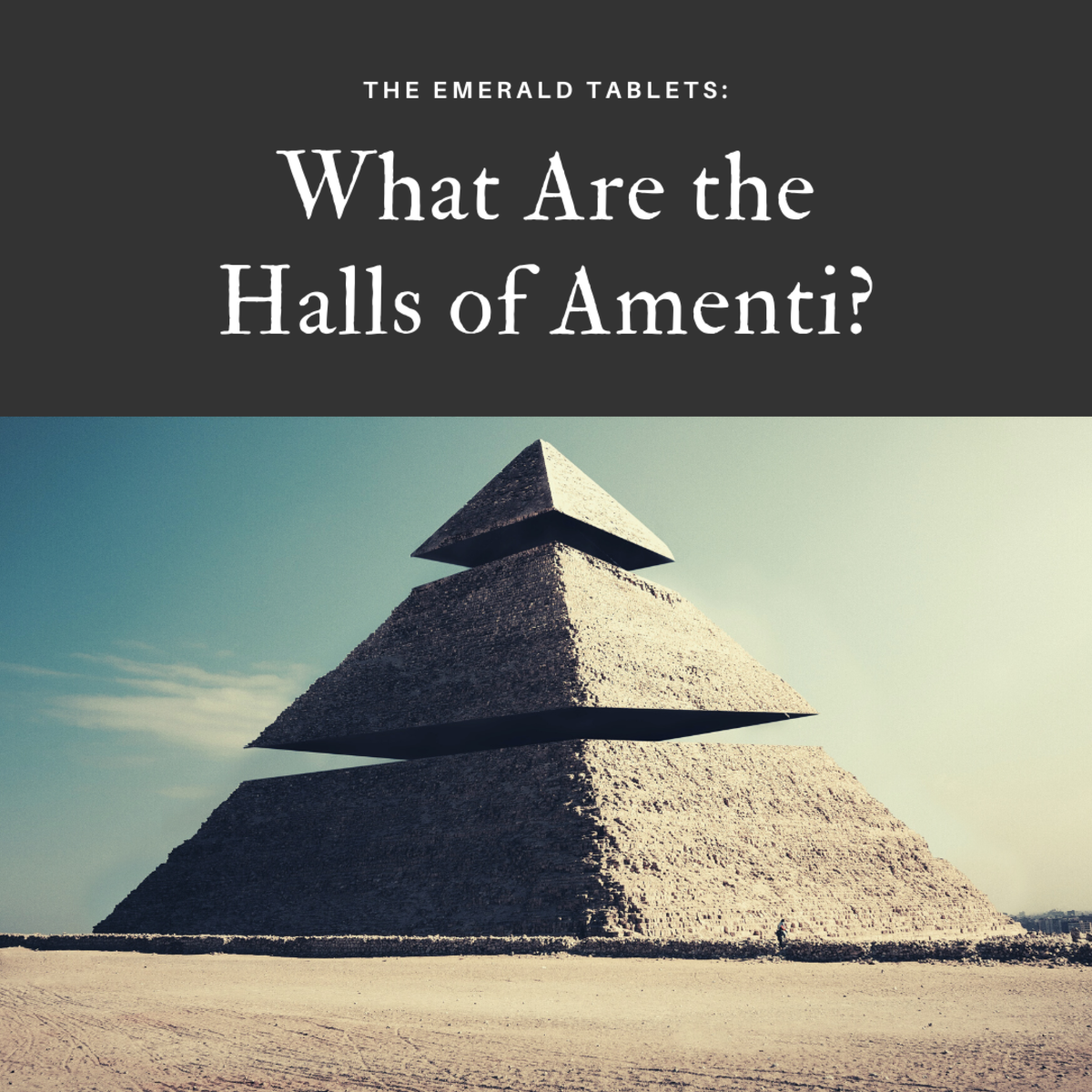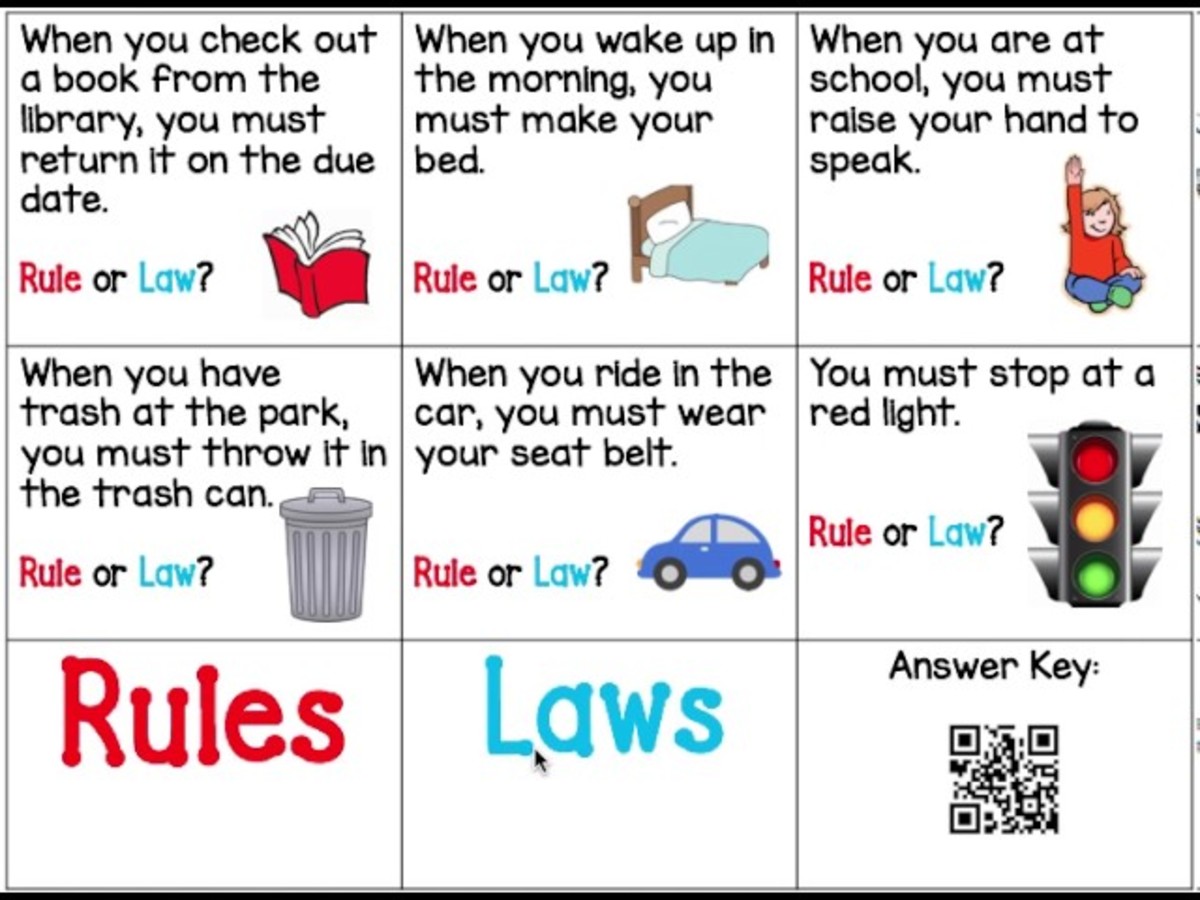Will I Be Saved? A Question of Faith

A Simple Question – A Simple Answer
A week ago I read a simple question posed by a young woman regarding her spirituality. It was such a pointedly blunt question that I thought it deserved a pointedly blunt yet accurate answer.
How does a Christian know if they are saved or not?
I thought about it for about twenty seconds before giving the obvious answer.
They don’t. That’s why it’s called ‘faith’.
Granted, the inspiration I took that from was partly from Douglas Adams’, A Hitchhiker’s Guide to the Galaxy in what Oolon Colluphid used to prove the non-existence of God.
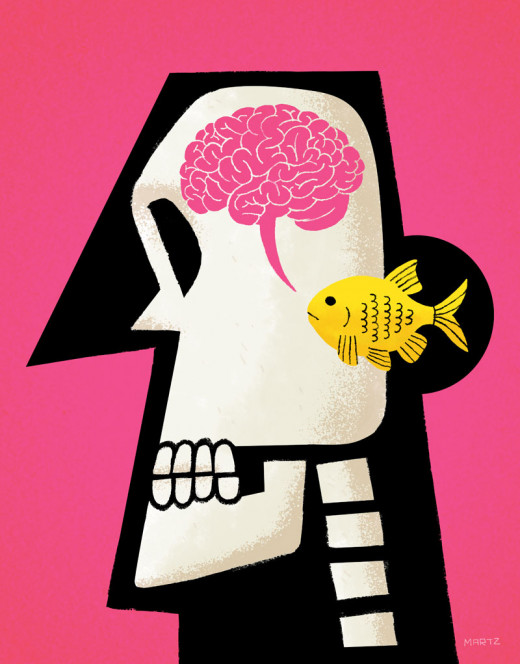
"I refuse to prove that I exist," says God, "for proof denies faith, and without faith I am nothing."
So, it was a simple answer to a simple question. My reasoning was that there is literally no empirical proof that if you have done everything that Christianity requires to save your soul, there is nothing to indicate you've succeeded. Meaning if you’ve done everything right, you won’t get an ethereal certificate that says “Good job!”
That’s not going to happen. You need to believe it and have faith that it’s done. If you’re satisfied, then I say, “Congrats! Well done!... Off with you now.”
Apparently that wasn’t good enough.

The Ravings of Zealots
The Internet is an amazing creature. It has a life of its own. It responds to stimulus.
So when I say that if I had a stopwatch, I wouldn’t have had time to click it before the first wave of Christian zealots came to quote Bible verses at me. They were like sharks that smelled blood in the water.
Now I need to tell you a bit about myself first. I went to a Jesuit college. I took theology, philosophy, and ethics. I’ve done my share of reading the Bible and, most of all, I grew up Catholic. I’m no longer Catholic. What I am doesn’t really have a name. But if you press me, I’ll tell you that I’m mostly an agnostic Buddhist.

In truth, I have nothing against Christians or Catholics – or any of the variants of the Protestant religions that are out there. In their minds, I suppose they mean well. They feel they have a burning message that infects their mind like jock itch in a football locker room. They just need to share it with as many people as they can so everyone can simultaneously scratch in the name of the Lord.
So when they went to my wife who is incredibly NOT CHRISTIAN and wished to draw her into their fold, she patiently, yet firmly, met them with the same kind of derision that is reserved for fruit vendors that sell worm infested apples.
Simply put, she said, “Sod off.”
Then she watched them scamper away to some other victim who had yet to hear the "good news" of the Lord.
Their very first bit of commentary seemed to align with my assessment about faith – until I realized the commenter didn’t know the definition of “faith” or “knowledge”. He certainly didn't know what the difference was.
Let me cover that now.


Faith versus Knowledge
I know that this is a tough concept for some people, so I’ll try to be simple about this. Knowledge is something you can prove and is experiential. Faith is built on trust.
A scientist uses facts and theorems (a general proposition not self-evident but proved by a chain of reasoning; a truth established by means of accepted truths) to discover new bits of knowledge. He can prove what he sees and postulates.
That's knowledge.
A religion is based on faith. This does not require proof; it does require belief. For example, I believe and have faith that I will wake up tomorrow morning from my sleep. Do I know this to be absolutely true? No. I could get hit by a car today or have a heart attack in my bed and never see tomorrow. However, I trust that if I remain healthy and don’t go anywhere a car can run me down that I will be alive and conscious tomorrow morning. I have faith that my physical body will endure another day.
Now, for those people who need the actual dictionary definitions:
knowl·edge (näləj) – noun 1.facts, information, and skills acquired by a person through experience or education; the theoretical or practical understanding of a subject. "a thirst for knowledge" synonyms: understanding, comprehension, grasp, command, mastery; 2.awareness or familiarity gained by experience of a fact or situation. "the program had been developed without his knowledge" synonyms: awareness, consciousness, realization, cognition, apprehension, perception, appreciation; formal cognizance.
faith (fāTH) – noun 1.complete trust or confidence in someone or something. "this restores one's faith in politicians" synonyms: trust, belief, confidence, conviction; 2. strong belief in God or in the doctrines of a religion, based on spiritual apprehension rather than proof. synonyms: religion, church, sect, denomination, (religious) persuasion, (religious) belief, ideology, creed, teaching, doctrine "she gave her life for her faith"
They really are two simple concepts – what you believe versus what you can prove.

If you really believe in what constitutes your metaphysical philosophy regarding religion, you don’t need to prove it. It is your philosophy. You own it. It constitutes your worldview and it makes you into the kind of person that you are. In troubled times you can lean on it as a source of comfort and know that somehow as bad as it gets, you’ll come out of a terrible situation okay because you have faith that all will work out.
Now, if for some reason you encounter an angel of the Lord who appears to you in the middle of your work day and is witnessed by a few other people (to insure that you’re not having a psychotic breakdown or stroke), you would have the knowledge that angels exist (as fact through experience) and that might give you a bit more weight to your other beliefs.
Where it doesn’t come from is a book of stories written thousands of years ago in a foreign land that have been mistranslated over many different languages before it was published in English from second and third party scribes decades after the telling.
For that you need A LOT of faith.
Salvation
Do you believe you'll go to heaven?
Quoting Scripture
The one thing that does not impress me is the Bible.
In my mind, its publishing is the worst crime perpetuated through the centuries and is indirectly the source responsible for slavery, the subjugation of women, the bloodiest of wars, the discrimination against homosexuality, the killing of witches (old women who happen to own land that the Church wanted), the Spanish Inquisition, the Crusades, and a thousand other bits of lingering evil done in the name of God.
And it’s not even good literature.
That does not stop narrow minded zealots from spreading their scripture fueled poison to Internet discussion boards.
The second commenter quoted John 5:13 – “I write these things to you who believe in the name of the Son of God so that you may know that you have eternal life.” And then quoted Proverbs 3:5 – “Trust in the Lord with all your heart and lean not on your own understanding;” And then quoted Calamarians 3:10 – “At that close range we won't last long against those Star Destroyers!”

Okay, sorry – that last one was from Admiral Ackbar in Return of the Jedi.
I figured that while someone was quoting what they considered their precious bit of fiction, I should add on to it with something people might actually like.
Here’s the problem that many Christians don’t understand. The Bible is not history. History is built on facts. We use archeology to prove historical facts and events.
You know, science. That’s the intellectual and practical activity encompassing the systematic study of the structure and behavior of the physical and natural world through observation and experiment.
History takes provable events and builds a chain of reason that is provable over and over again. Archeologists use techniques like carbon dating. Astronomers use space probes to figure out the age and origins of the universe.
This is to find facts and truth.

The events that happened in the Bible – NOT PROVABLE. If you took some of the Bible’s stories and some of Mother Gooses’ fairytales and read them to a child they wouldn’t be able to tell the difference. It’s fiction, not history. Compare Old Mother Hubbard to Jonah and the Whale and they both sound equally fanciful until you realize that Jonah’s story was a trial and act of faith that he was saved by God from the belly of a whale.
It’s a book that wasn’t written by God. Men wrote it. Most of the New Testament wasn’t actually written by Mathew, Mark, and Luke. Those parts were written by people who knew Luke decades after their stories… in another language… translated from Hebrew to Greek to Latin and eventually to English.
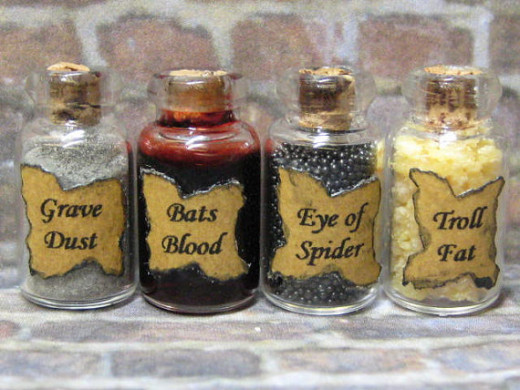
Then we have the King James Version of the Bible. Thousands of women lost their lives because of his mistranslation of “Thou shalt not suffer a witch to live.” This is because the word “witch” was supposed to be the word “poisoner” (pharmakeia) which is not “witch” or “sorceress” – unless you’re translating it in the sense that person is a “wizard with potions”. It would be funny if it wasn’t for the fact that people were burned to death for it.
Strict adherence to the Bible’s scripture (or prose) was responsible for the shunning of the homosexual community. Leviticus tells that “man should not lie with man – it is an abomination.” The same book of the Bible stood as the foundation to the pro-slavery arguments toward blacks. Both of these topics have been recognized for the folly they were in the past in the removal of the Confederate Flag from southern state government buildings (in the latter point) and the Equality of Marriage decision made in June 2015.
This was mostly rooted in taking Bible scripture and perverting it toward the ways of evil.
When you take the Bible to be a work of fiction with a few good messages in it, you remove the false divinity that people have fused within it.
Words of Scripture are not axioms or postulates. They are quotes. They are much like the works of Shakespeare, The Quran, or the Bhagavad Gita – or the words of Star Wars if you’re so inclined.
Knowledge or Faith
What is it?
| Faith or Science
| |
|---|---|---|
Archeology
| The Study of Human Activity in the Past
| Science
|
Theology
| The Study of Gods
| Faith
|
Astronomy
| The Study of Celestial Objects
| Science
|
Mythology
| The Study of Myths and Stories
| Faith
|
A Transformative Book?
Another commenter came from a woman who claimed that she was not a Christian and had “just started reading the Bible” and was researching “salvation”. She claimed that one must follow God’s path until you reach the end. In some senses, which I will address later, she was correct. She later went on to quote chapter and verse of Mathew.
And ye shall be hated of all men for my name's sake: but he that endureth to the end shall be saved. - Mathew 10:22
I don’t disagree.
Of course, this also goes back to my answer that you need to have faith in the teaching and the process that lead to that quote – as well as everything else said in the Bible. So again, we come back to the concept of “faith”.
What smells to me is the truth of who she is. A casual reader who is looking for salvation would not stop at the Bible and say, “I’m sold! This is for me! I have found SALVATION!”
Really? While I’m not saying she’s wrong, I am saying she’s not thorough. Christianity and Catholicism both like to claim that they are the only religions that have a true afterlife. If you believe that, I have a bridge to sell you AND I’ll throw in the fake Rolex for free.

Have you ever read the Bible? Yes, I know. I hear some of the zealots in the back of the room screaming that they have.
I’m not talking to them. I’m talking to the average person. The Bible is not a good read. The language is cumbersome and open to much debate. You really could trip over an article or a misplaced "thou" and hurt yourself in the reading. It is the type of book that is a cure for insomnia. It’s right up there with The Rules and Regulations of Tax Accounting – 3rd Edition.
I’ve read it… twice. I read it once when I was in high school as part of a school religion course (Catholic high school) and another time when I was older, hoping to see if it had gotten any better as I matured.
It hadn’t.

All I really discovered was that it was full of bad writing. I wasn’t illuminated. I found no peace from it. I’ve gained more insight from other books like Siddhartha by Hermann Hesse. I’ve certainly found more compassion in other works. I’ve read books written by the current Dali Lama that have brought me a certain amount of peace. And more than anything else, I’ve experienced true spirituality in some of the more ordinary events in my life.
I get my peace from living.
There are a whole host of alternate religions that promise salvation and the list grows all the time. I include the Temple of the Jedi Order (largely based on lessons taught in the Star Wars movies), Paganism, Druidism, The Native American Church, Sokka Gakkai, Zen Buddhism, and the Universal Life Church.
I don’t include Scientology because screw those people.
Finding salvation is not something you do quickly. It’s rarely done in the reading of one badly written book – and I’m leery of people who claim as much. In reality, only you will know what is right for you. One stop shopping rarely works in this matter.
It’s important and you should take your time.
When you read these holy books, the quotes are part of stories collected by men and assembled to reveal either a possible greater truth or as a tool to control the masses. When you think of the editing process that went into the New Testament and all of the Gnostic gospels that were thrown out, you have to wonder how the vetting process took place and why some of them were excluded.
This should be part of the “faith thing”.

Are You Saved? – Final Thoughts
I promised myself that I wouldn’t write like this again.
After I’d shut down my old site with similar essays, I thought I put all of this behind me. I screamed my objections to the televangelists that exploited the poor and the elderly. I was outraged by the holy rollers that seemed to practice their spirituality in the same way some people read stereo instructions. The anger and vitriol that I spewed was not good for my soul and eventually I found myself getting annoyed with everyone.
No one needs to do that.
But there are times… oh there are times… that I really need to reach through my monitor and let the monster out. As the song from The Killers says “They say the Devil’s water, it ain’t so sweet. You don’t have to drink right now – but you can dip your feet every once in a little while.” This is one of those times.
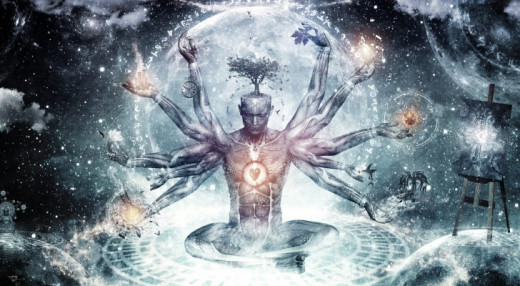
I have nothing against the Christians. I wish them well. If they’ve found comfort in their religion then they should enjoy the security they have in their beliefs. I just believe they don’t have the right to tell me or anyone else what or who to believe. My life experiences are different and they do not know me like I know me.
I set out to give one thing: A simple answer to a simple question. “How do I know my soul was saved?”
Perhaps a better question is “Why do we have faith in salvation?”
I know that when it comes to where you are at the very end of your life, you need to believe in some kind of salvation. This is where I agree with Mathew 10:22. It is the very end where your consciousness is tuning out. You need to have a rock solid faith to believe you’re not going into a frightening void. You need to know that your essence is going to a better place where you will be happy for the rest of time.
The horror of a religion that says if you aren’t doing everything according to a book written thousands of years ago that is most probably wrong in every respect will only guarantee your salvation – else you must spend your time in a hellish way station or an eternity in a lake of fire. Does that sound like a religion or philosophy you’d like to follow? When other people are telling you that you’ll go to Hell if you don’t eat kosher meats or if you follow your heart to a man or woman who happens to be the same sex as you, you have every right to tell them to go get bent.
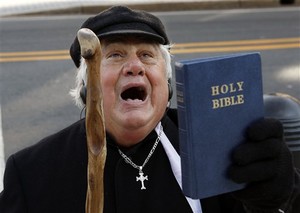
I would like to think that there is someone there to offer me comfort in my final hours. I don’t want to spend my final thoughts in being a neurotic and remembering the time I was ten and ate a ham sandwich on a Friday during Lent.
When I meet my maker, I will know that I will meet Him or Her. My last thoughts will be those of happiness. They won’t be whether on not I followed a book of badly written instructions from an ancient mistranslated book.
I will have FAITH that I’ll be okay.
© 2015 Christopher Peruzzi




